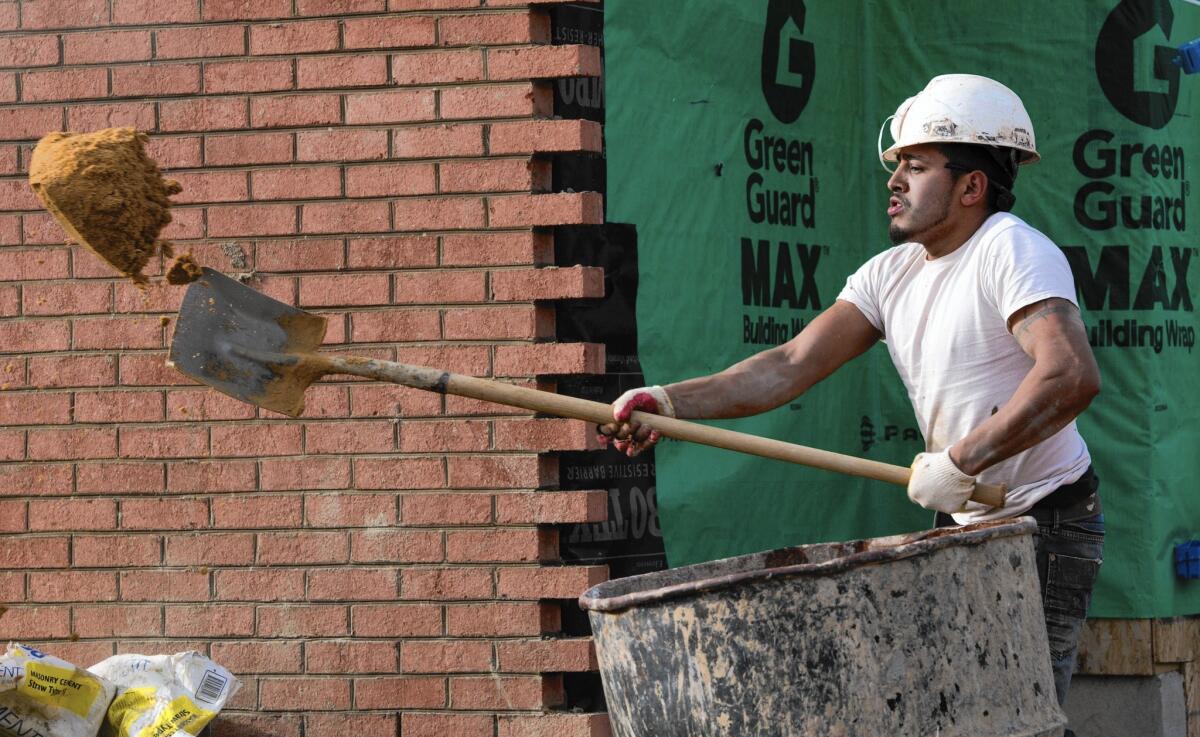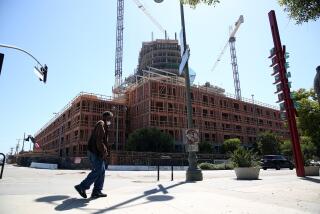FHA to lower mortgage insurance fees

President Obama said Wednesday that the Federal Housing Administration will lower its high fees for mortgage insurance, a bid to encourage more purchases by first-time and middle-income home buyers.
The agency will drop its annual premiums on new mortgages to 0.85% from 1.35% of the total loan amount, the White House said ahead of Obama’s planned housing speech Thursday in Phoenix.
The new rate remains higher than historical levels but could shave about $900 off the average FHA borrower’s annual payment, the government said. On a $200,000, 30-year fixed home loan with less than 5% down, a borrower would save $818 after one year and $7,421 after a decade, according to real estate website Zillow.
In pricey California — where FHA loans are involved in up to 15% of home sales — the move could save average buyers as much as $2,000 a year, former FHA Commissioner David H. Stevens said.
The FHA rate cut could help more than 800,000 homeowners nationally save money and encourage 250,000 new home purchases in the next three years, according to the White House. Federal regulators also loosened lending requirements this fall on loans backed by mortgage finance giants Fannie Mae and Freddie Mac.
“The Administration will not tolerate a return to shoddy underwriting or unsustainable mortgage lending, but believes there are too many middle-class families with good credit by historical standards who remain shut out in today’s tight market and deserve a chance to buy their own home,” the White House said in its statement.
The economic benefits could extend to other industries, said Stevens, who is now chief executive of the Mortgage Bankers Assn. in Washington.
“It creates a lot of new jobs in moving, decorating, appliance installation and more,” he said. “It isn’t the magic pill that’s going to get the economy racing faster, but it is without question a very stimulative outcome.”
The FHA backs home loans and charges borrowers fees to cover the cost of insuring lenders against default. The program is popular among cash-strapped buyers, who can put down as little as 3.5% of the house price, but higher mortgage insurance rates have made the loans less attractive.
The National Assn. of Realtors estimates that nearly 234,000 creditworthy borrowers — tens of thousands of them in California — were priced out of the housing market last year due to high FHA premiums.
The share of houses purchased by first-time owners was at its lowest level in nearly three decades, down to 33% from 38% in 2013 and trailing the long-term average of 40%, according to the National Assn. of Realtors.
Major players in mortgage lending, such as Wells Fargo & Co, stand to benefit, Jaret Seiberg of Guggenheim Securities wrote in a note to clients.
“Our expectation is that the biggest banks are best poised to take advantage of a new surge in refinancings,” Seiberg said. “They have existing systems and experience to handle a surge in volume.”
Mortgage insurance rates spiked after the housing crash. A higher default rate on FHA-backed loans meant heavier losses for the agency. Even as the economy slowly recovered, the FHA’s cash reserves sank. The agency raised its rates — which were just 0.55% in 2011 — several times to replenish the stockpile.
But in 2013, the FHA received a $1.7-billion bailout from the U.S. Treasury.
On Wednesday, U.S. Sen. Bob Corker (R-Tenn.) called the rate cut “bad news for taxpayers” and “yet another irresponsible, head-scratching decision from the administration in regards to our nation’s housing finance system.”
“The federal government should be winding down its involvement in the mortgage business, not engaging in a race to the bottom,” Corker said in a statement.
But the White House said Wednesday that better risk management and credit policies will help the FHA add a projected $7 billion to $10 billion each year to its cash cushion.
The government also said it would endeavor to further clear up lending standards, slash red tape and push for comprehensive legislation to reform housing finance.
@tiffhsulatimes






